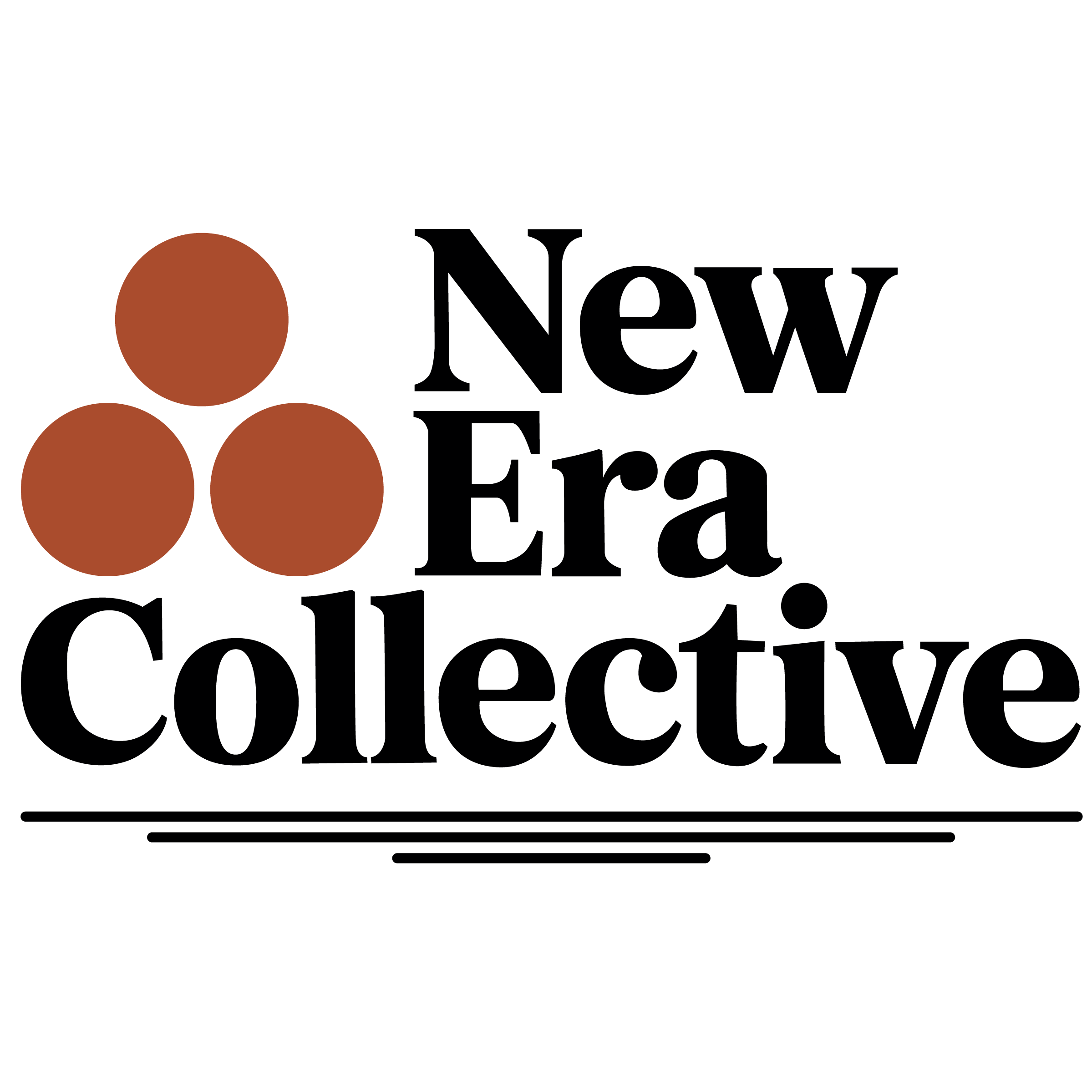From The Front Porch
I was reading a Harvard Business Review article last month about a guy named Steve Wanner. Partner at Ernst & Young. Successful by every metric that matters to most people.
12-14 hour days. Big clients. Respected in his field.
Completely exhausted.
The article described how he'd wake up tired, push through meetings on caffeine and adrenaline, come home drained, barely present with his family, then collapse into bed only to do it all again the next day.
What caught my attention wasn't his schedule. It was this line: "I had the time. I just didn't have the energy to use it well."
That hit different.
Because three years ago, I had the opposite problem everyone talks about. I wasn't short on time—I'd done all the productivity work. I'd cut the meetings, blocked my calendar, protected my mornings.
My schedule looked perfect on paper.
But I'd show up to those protected morning blocks completely fried. I'd sit down to do deep work and have nothing left in the tank. I'd carved out time for the gym and then skip it because I was too drained to go.
I thought I was bad at execution. Turns out, I was just bankrupt.
Energy bankrupt.
I was bleeding energy into Slack messages that didn't need responses. Into "quick calls" that solved other people's problems but created none of my own momentum. Into scrolling news that made me feel informed but left me feeling depleted.
Steve's breakthrough in that article was treating energy like money. He started tracking it. Where it went. What drained him. What recharged him. What gave him a return.
He cut the energy drains. He invested in the energy gains. He set boundaries around his energy the same way he'd set boundaries around his budget.
Six months later? Working fewer hours, performing better, actually present with his family.
Not because he found more time. Because he stopped spending energy on things that would never pay him back.
That article made me realize: I'd been managing my time like a CFO but spending my energy like it was infinite.
It's not.
A Hard Truth
Your exhaustion isn't noble. It's expensive.
Every time you say yes when you mean no, you're not being kind—you're going into debt. Energy debt.
That family member who calls to vent for an hour but never asks how you're doing? That's a withdrawal with no deposit. The group chat that drains you but you stay in because you don't want to seem rude? Another leak. The favor you do because saying no feels like betrayal? You just spent energy you needed for yourself.
We've been taught that caring people are always available. That good friends drop everything. That loving parents sacrifice endlessly.
Screw that.
You're not tired because you care too much. You're tired because you're investing in people and situations that will never give you a return.
Energy isn't unlimited. And the people who seem to have it? They stopped funding relationships and obligations that only take.
Today's Shift
The Energy Compound Framework:
Step 1: Identify Your Multipliers
Some activities don't just give you energy back, they multiply your capacity for everything else.
A morning workout doesn't just burn calories. It gives you clarity for the next 8 hours.
A real conversation with someone who gets you doesn't just feel good. It reminds you who you are, which affects every decision you make that week.
15 minutes reading something that challenges you doesn't just add knowledge. It shifts how you think about problems for days.
These are energy multipliers. Find yours.
Step 2: The 1% Daily Investment
Energy compounds like interest.
15 minutes daily on something that energizes you = 91 hours a year of momentum.
One genuine conversation weekly = 52 deposits into a relationship that keeps paying back.
A morning routine that sets your energy right = 365 days of operating at higher capacity.
Small, consistent investments create exponential returns. But only if you're consistent.
Step 3: Stack Your Investments
The real power? When your energy investments build on each other.
The workout gives you clarity. The clarity helps you have better conversations. The conversations remind you what matters. What matters guides where you invest energy next.
That's not management. That's momentum.
Stop asking "Do I have enough energy today?" Start asking "What am I building that will give me MORE energy tomorrow?"
By the Numbers
he Compound Effect in Action:
- A 30-minute morning routine that energizes you creates 182.5 hours of higher-capacity operation per year. That's not just time—it's better decisions, clearer thinking, and stronger presence in everything you do.
- One weekly phone call with someone who actually fills you up = 52 energy deposits that keep paying dividends in confidence, clarity, and connection.
- Investing 15 minutes daily in something you're genuinely curious about = 91 hours annually of momentum toward something that matters, plus the compounding knowledge and skills that multiply your capacity.
- People who actively invest energy in multipliers report 3x higher sustained energy levels over 90 days compared to those who only focus on cutting drains.
The math is simple: Small, consistent energy investments don't just add up. They multiply.
A Story
I was wrong about Linda for a long time.
She taught 4th grade down the hall from me when I was teaching 6th grade. She's retired now, 62. Every morning at 6 AM, she's in her garden. Every single morning. Rain, cold, doesn't matter.
I used to think: "That's nice. She has a hobby."
Then last month, her daughter told me something that shifted how I see everything.
Linda started that garden after her husband died. Not because she loved gardening, she didn't know anything about it. She just needed something to do with her hands that wasn't crying.
But here's what happened: The garden gave her a reason to get up. Getting up early gave her energy for the rest of the day. That energy helped her reconnect with old friends. Those friendships led to volunteering at the library. The library work introduced her to a book club. The book club gave her a community.
One small investment, 30 minutes in a garden she didn't even care about, compounded into an entirely new life.
I asked Linda about it recently. She said: "I still don't love gardening. But I love who I became because of it."
That's the thing about compound investments. You don't invest in the activity. You invest in who it turns you into.
Tools for the Week
This week, I'm not giving you three new tools. I'm giving you two that actually matter and showing you how to use what you already have differently.
In the member commons, you'll find:
The Multiplier Audit - A worksheet to identify your personal energy multipliers... the specific activities that don't just restore energy but increase your capacity for everything else. These are different for everyone. Find yours, then design your week around them.
Energy Tracker 2.0 (Week 3 Evolution) - You already have this from Week 2. This week, use it with a new lens: Stop just tracking what drains or fills you. Start tracking what creates momentum that lasts beyond the activity itself. That's how you spot compound energy investments.
Two tools. One new, one evolved. Both focused on the same outcome: turning your energy into something that grows instead of something that just gets spent.
No bloat. No tool overload. Just what you need to start investing instead of just managing.
Advanced Play
The Energy Stack Experiment:
Once you've identified your multipliers, try stacking them intentionally.
Example: Morning workout (multiplier) → gives you clarity → use that clarity for a meaningful conversation (another multiplier) → that conversation reminds you what matters → which guides your energy investments for the rest of the week.
Track one stack for 30 days. Watch how one good decision creates the conditions for the next one.
The goal isn't perfection. It's momentum.
Most people treat each day like it starts from zero. But when you stack energy multipliers, each day starts from wherever yesterday left you.
That's not just compound interest. That's exponential growth.
What's Coming Next
This week builds from understanding energy as an economy to mastering how you invest it:
Tuesday: Energy Drains vs Energy Gains - How to tell the difference between what depletes you and what depletes you well
Wednesday: The Compound Effect - Why small energy investments create exponential returns (and why most people quit before they see them)
Thursday: Energy Boundaries - Protecting your investments from people who want to spend your energy for you
Friday: Your Energy Portfolio - Putting it all together into a system that builds momentum, not just manages depletion
Share The Daily Collective
Know someone who's exhausted despite doing "all the right things"? Someone who's cut the drains but still feels empty?
Forward this to them. Energy work is easier when you're not figuring it out alone.
And if this hit home for you, share it. The people in your life who are running on fumes need to hear this.
Closing Thought
You can't budget what you don't track. And most of us are bleeding energy into investments that will never pay off.
Time to stop managing depletion and start building momentum.
— Damien



